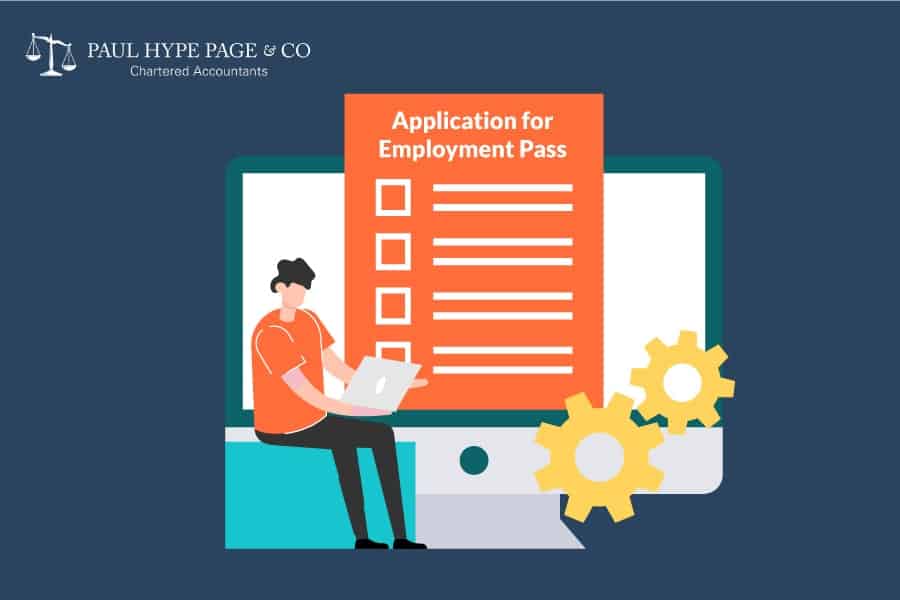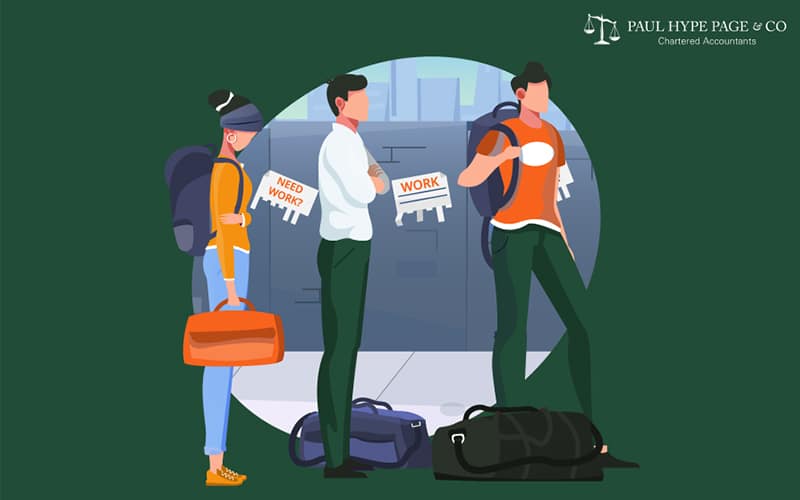Singapore has long been a top destination for foreign professionals and entrepreneurs, and as of 2024, over 1.86 million foreign workers call Singapore their home. With its strategic location, highly developed infrastructure, and progressive policies, Singapore remains an attractive option for people seeking both career opportunities and an excellent quality of life. This article breaks down everything you need to know about Singapore work visas, from eligibility requirements to the various visa types available.
Why Are Singapore Work Visas So Popular?
Singapore’s work visas remain in high demand for good reason. The country offers outstanding economic prospects, a stable political environment, and an unparalleled lifestyle that appeals to professionals and entrepreneurs alike. Singapore’s transparent legal system ensures that businesses can operate smoothly, and the quality of life—from world-class healthcare to excellent educational systems—makes it an attractive choice for foreign professionals seeking career advancement and a high standard of living.
For international workers, the country offers attractive remuneration packages, with competitive salaries often including other benefits such as health insurance, bonuses, and professional development opportunities. Furthermore, Singapore’s efficiency in processing applications and its streamlined work visa process make it a popular choice among foreigners looking for a stable job market in Asia. With its strategic location at the heart of Asia, Singapore provides a gateway for foreign businesses to access other ASEAN markets, making it an important hub for regional and global trade. All these factors combined contribute to Singapore’s consistent ranking as one of the best destinations for foreign employment.
Types of Work Visas in Singapore in 2025
All foreigners intending to work in Singapore are required to hold a valid work pass (commonly known as a work visa) before commencing employment. Depending on the nature of the work and the professional’s qualifications, different types of passes are available. This section provides an overview of the various work visas and their eligibility criteria, along with what each pass allows.
Singapore offers a wide variety of work visas, each tailored to specific types of workers, from high-skilled professionals to semi-skilled and migrant workers. These visas include the Employment Pass (EP) for professionals, the EntrePass for entrepreneurs, the S Pass for skilled workers, and work permits for migrant workers, such as domestic helpers. The right visa will depend on the applicant’s qualifications, salary, and the type of work they will be doing in Singapore. Each pass has specific criteria and different application processes, so it is important to understand what qualifies you for each before applying.
For Professionals:
1. Employment Pass (EP)
The Employment Pass (EP) is for foreign professionals, managers, and executives who are looking to live and work in Singapore. As of 2025, applicants for the EP must meet the following requirements:
To qualify for an EP, candidates must earn a minimum salary of SGD 5,000 per month for most sectors, and at least SGD 5,500 for those working in the financial sector. Additionally, applicants must hold a recognized degree or equivalent qualifications and have relevant professional experience. One of the more significant changes in recent years is the introduction of the Complementarity Assessment Framework (COMPASS), which requires applicants to meet a points-based system based on salary, qualifications, and the overall contribution to Singapore’s economy.
This system, which started in 2023, has made the application process more competitive, and applicants must now meet the points threshold to qualify for the EP. The framework takes into account factors such as the salary offered, the level of education, and the degree to which the applicant contributes to local employment and economic growth. These changes have been put in place to ensure that foreign workers complement, rather than displace, local workers.
2. EntrePass
The EntrePass is designed specifically for foreign entrepreneurs who are looking to start and operate a business in Singapore that is venture-backed or involves innovative technologies. To be eligible, applicants must meet certain criteria, including the requirement that the business is either venture-backed or uses cutting-edge technologies in its operations.
If you are applying for an EntrePass, your business must also be less than 6 months old at the time of the application. In addition, the business must be involved in high-tech or innovation-driven industries such as IT, biotechnology, or advanced manufacturing. While the process can be competitive, entrepreneurs who qualify for this pass benefit from greater flexibility in running their businesses in Singapore.
3. Personalized Employment Pass (PEP)
The Personalized Employment Pass (PEP) is another option for foreign professionals in Singapore who are currently holding an EP or overseas foreign professionals. The PEP offers greater flexibility than the Employment Pass, as it allows you to switch employers without the need to apply for a new pass.
To qualify for the PEP, you must earn a fixed monthly salary of at least SGD 22,500. This pass is designed to attract high-caliber foreign professionals who have the flexibility to work for multiple employers, switch industries, or even take on more entrepreneurial ventures. However, it’s important to note that the PEP is non-renewable after three years, so those holding it must plan their long-term career moves accordingly.
4. Overseas Networks and Expertise Pass (ONE Pass)
The ONE Pass is designed for top talent in various fields, including business, arts, culture, academia, and research. To qualify for this pass, candidates must have earned a fixed monthly salary of at least SGD 30,000 or have demonstrated outstanding achievements in their respective fields.
This pass is ideal for senior professionals and highly skilled workers in industries such as sports, arts, and academia. The ONE Pass allows holders to work in Singapore for an extended period and provides flexibility for professionals to operate across various sectors, making it an attractive option for those seeking long-term career opportunities in Singapore.
For Skilled and Semi-Skilled Workers:
1. S Pass
The S Pass is aimed at skilled and semi-skilled foreign workers, offering a path to employment for those in industries such as construction, manufacturing, and services. To qualify for the S Pass, applicants must earn a minimum salary of SGD 3,150 per month, though this amount may vary depending on the sector.
Employers also face a quota system that limits how many S Pass holders they can hire based on the number of locals in their workforce. The S Pass also requires employers to pay a monthly levy, which is set by the Ministry of Manpower (MOM) based on the number of S Pass holders employed.
2. Work Permit
The Work Permit is primarily for lower-skilled workers in Singapore and comes in various categories, such as work permits for migrant domestic workers and performing artistes. Eligibility requirements for the Work Permit depend on the type of job, with specific passes available for certain industries like construction, manufacturing, and marine.
In addition to the regular work permits, there are also sector-specific categories such as the Work Permit for Confinement Nannies or the Work Permit for Domestic Workers. These passes are highly regulated, and the application process typically involves proof of employment and salary.
For Family Members of Work Pass Holders:
1. Dependant’s Pass
For those holding an Employment Pass or S Pass, the Dependant’s Pass allows their family members to join them in Singapore. Applicants for a Dependant’s Pass must meet specific salary requirements, which are typically SGD 6,000 per month for a spouse and children.
2. Long-Term Visit Pass (LTVP)
The Long-Term Visit Pass is another option for family members of work pass holders. Unlike the Dependant’s Pass, the LTVP allows the holder’s spouse, parents, or children to join the primary work pass holder in Singapore. Applicants must meet the same salary threshold as the Dependant’s Pass for the family member to qualify.
Work Visa Compliance and Renewal
Work visas in Singapore are typically granted for a period of 1 to 2 years, depending on the type of pass issued and the applicant’s eligibility. The duration of the visa often reflects the nature of the job and the professional qualifications of the applicant. When applying for a work pass renewal, employers must ensure that the conditions set by the Ministry of Manpower (MOM) continue to be met. This includes confirming that the employee still meets the minimum salary requirements, the job remains in line with the original job description, and any other industry-specific regulations are adhered to. Renewals are generally straightforward if the worker continues to meet all the eligibility criteria for their pass, such as maintaining their salary level or ensuring the job role remains in line with their initial application.
However, it is important to note that certain passes require more documentation or have additional requirements during the renewal process. For example, EntrePass, which is aimed at foreign entrepreneurs, requires applicants to submit additional evidence of their business’s performance, growth, and economic contribution to Singapore. This may include details such as financial statements, business expansion plans, and proof of employment of local workers. The S Pass also has its own renewal criteria, which are influenced by factors such as the company’s S Pass quota and the worker’s job role. Furthermore, renewal timelines can vary based on the pass type, and there may be additional processing time if the applicant needs to provide extra documentation or clarification. To ensure a smooth renewal process and to avoid any gaps in employment authorization, employers should apply for work pass renewals well in advance—at least 6 to 8 weeks before the pass expiration—giving sufficient time for approval and addressing any potential issues.
Conclusion
Navigating the work visa process in Singapore can seem complex, but with the right understanding of the requirements and regulations, foreign professionals and entrepreneurs can successfully secure a work pass. Singapore offers a variety of passes tailored to different types of professionals, from entrepreneurs to skilled workers. Whether you’re looking to start a business or work for a company, there is a visa option for you. To ensure that your business and work visa applications comply with current regulations, consider working with an experienced consultant or legal advisor.
FAQs
The process for a foreigner to register a company in Singapore is similar to that of a local, with the exemption of the need to apply for an Employment Pass to physically be and work in Singapore.
You can read more about it here.
A foreigner needs to apply for an Approval-In-Principle EntrePass if the foreigner wants to register a business and act as a local manager of the business firm. The foreigner must also have a Singapore residential address in the above cases. After obtaining the AIP-EP, the foreigner will have to approach a professional firm or a service bureau for submitting the BizFile transaction on his behalf to register a new business.
To make sure that you are applying for the right work visa, you can make use of a tool offered by MOM which is the Self-Assessment Tool (SAT). This tool will help you check your eligibility and determine based on your nationality, education profile, working background/experience, and salary. From this, you will be able to know under which category you fall. Since MOM has enforced tight criterions on granting EP, this tool will give you a more definite and case by case answer according to your personal profile, position and condition. You may head to MOM’s site for the Self-Assessment Tool.
If the tool indicates that you will not qualify, do note that this Self-Assessment Tool only serve as a system to check your eligibility and criteria prior to your application and NOT the approval of your application.
For foreigners who wish to work and live in Singapore, they are required to have work visas, and the relevant work visa is Employment Pass (EP). An Employment Pass is a work visa that allows foreign professionals in managerial, executive or specialist role who have job offer in Singapore to relocate there and work.
Share This Story, Choose Your Platform!
Related Business Articles





